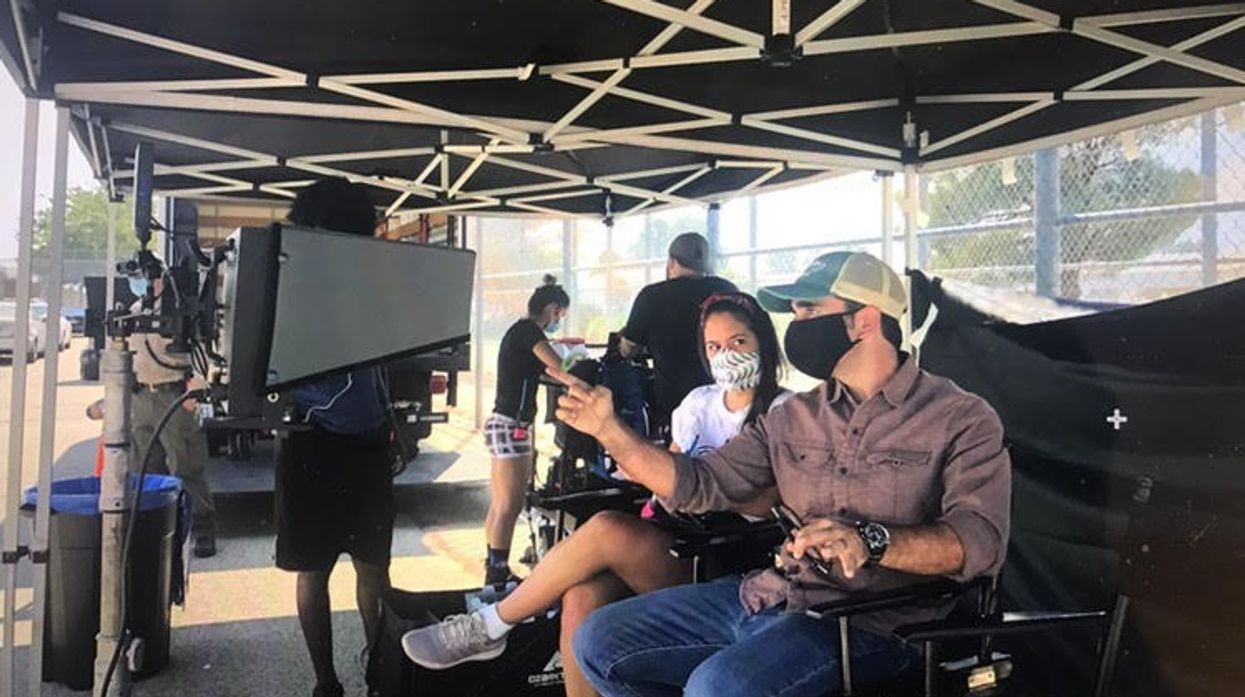How This Indie Filmmaker Surpassed the Bechdel Test
Is there a way we can pass and surpass the Bechdel Test?

This post was written by Dastan Khalili.
The Bechdel Test, named for American cartoonist Alison Bechdel, is a measure of the representation of women in fiction. It asks whether a work features at least two women who talk to each other about something other than a man. Bechdel first referenced the test in a 1985 comic strip, but it was not widely discussed until the 2000s.
We have seen a bevy of female action stars over the last few decades—Angelina, Charlize, Scarlett—but male action heroes have always dominated the genre. And even when we watch these women on screen, too often their characters seem to be hiding any signs of femininity.
But now, culturally, gender identity has taken on new meaning, so why can’t we break down some stereotypes on screen? In making my recent independent film, The Way, for example, my intention was to bring balance to a lead character; a character not defined by traditional definitions nor gender misnomers.

Several factors came into play—a compelling script, of course, with an equally compelling lead. Eventually, I knew my lead would be female and someone who could earn an audience’s affections as both a beauty and a bad-ass. A strong actress who could traverse both the masculine and the feminine, ultimately bringing unity and wholeness that would become the tip of the spear.
Eventually, and to add another factor to the pursuit, the metaphysical art of qi gong became a part of the story, becoming a perfect vehicle to balance the masculine and feminine.
Qi gong is actually about finding unity within the yin and the yang—yin being feminine, yang being masculine. The concentric circles that emanated from the concept ultimately informed the performances and final film.
At last, the doors of perception opened and the story began to write itself.

Using Victor Hugo‘s the Final Days of a Condemned Man as a platform for the story of capital punishment, and injecting nuggets from The Drunk Who Can’t Swim, written by the Persian poet and storyteller Saddi, I had a rich pallet to start from.
Initially, when I was constructing the story, the lead character was a man as in Hugo‘s original novelette. This, however, put the female character in a secondary position which we have often seen predominate in the feature film space.
Recognition of the desire and the inspiration to have yin and yang as the concept of the film, the balanced masculine and feminine, required I switched the protagonist lead to a woman. The film depicts a street fighter, effectively played by Eli Jane, who is condemned to death after brutally killing her opponent in an underground street fight and undergoes a major evolution on death row through the practice of qi gong under the tutelage of a fellow inmate.
In the course of the film, the lead character demonstrates physical and emotional power as well as softness and gentility.
Ultimately, The Way is an exploration of bringing yin and yang back into balance within oneself, and the concentric effect that has on the world and those around us. The film’s characters go through this cycle within and without through the film’s journey.
The result met my goals and has compelled me to continue on this path with my next screenplay which features two strong and feminine women leads. I hope and believe that this path in narrative storytelling has taken root and will continue to flourish, impacting the general human archetype and mythology in society.
Representation matters. We’re hearing that a lot lately but not everyone is “walking the walk” yet. However, I am seeing some examples all around me, like positive messaging around equality. We are awakening to a new era where the balance between masculine and feminine is increasing more and more every day.
The industry as a whole has been imbalanced for a long time. But it seems now we may be at a tipping point—a big shift is happening, and our traditional archetypes and mythos are being challenged. My hope is that someday, we’ll not only pass the Bechdel Test over and over, but we’ll also consistently surpass it.
This post was written by Dastan Khalili. He is a filmmaker, charitable force, and poet, who infuses humanity and global consciousness into everything he does. An award-winning writer and director, his latest film, the action/drama film, The Way, currently on-demand on cable and online, has garnered more than 50 awards worldwide.











